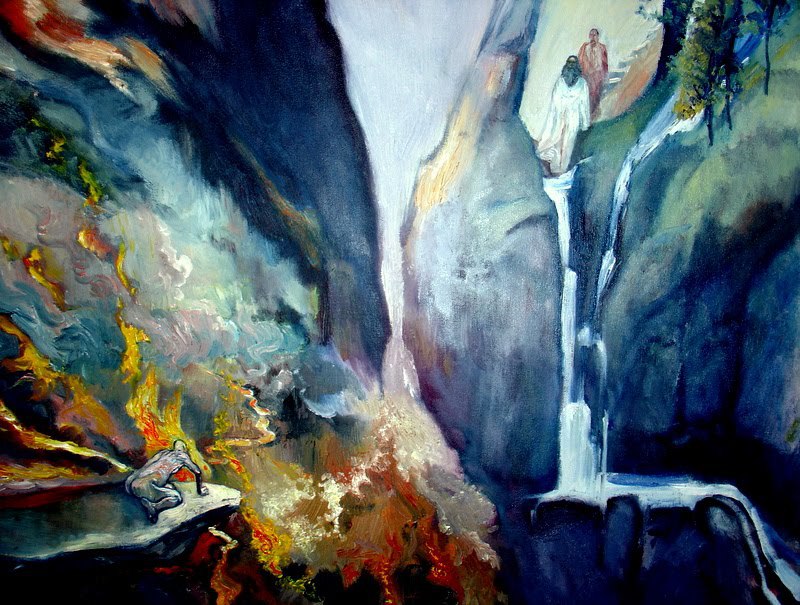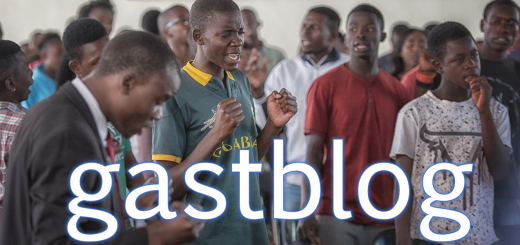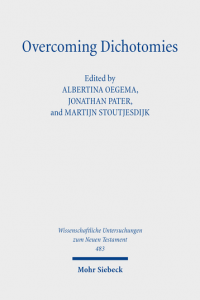Bitcoins, heavenly storehouses and the transience of (spiritual) wealth
For those who have invested in Bitcoins or other digital currencies, it has not been a good week. Bitcoin dropped 12% without any clear cause, panic arose among investors, and financial analysts warned that Bitcoin could be the biggest bubble in history (CNBC, 30 January 2018). In the meantime, papers publish both stories of winners and losers of the cryptocurrency-mania. This makes it the perfect occasion to write a blog about another form of virtual riches: the storehouses of heavens. Let us start with a parable about greed (Luke 12:16-21):
The land of a rich man produced abundantly. And he thought to himself, “What should I do, for I have no place to store my crops?” Then he said, “I will do this: I will pull down my barns (τας ἀποθήκας) and build larger ones, and there I will store all my grain and my goods. And I will say to my soul, Soul, you have ample goods laid up for many years; relax, eat, drink, be merry.” But God said to him, “You fool! This very night your life is being demanded of you. And the things you have prepared, whose will they be?” So it is with those who store up treasures for themselves but are not rich toward God. (NRSV)
 This parable warns us not to invest (too much) in the gathering of riches in this world, but to store up treasures toward God instead. In Matthew 6:26 (//Luke 12:28) the audience is even called not to collect things at all, but to trust only in God: “Look at the birds of the air; they neither sow nor reap nor gather into barns (οὐδε συνάγουσιν εἰς ἀποθήκας), and yet your heavenly Father feeds them. Are you not of more value than they?”.
This parable warns us not to invest (too much) in the gathering of riches in this world, but to store up treasures toward God instead. In Matthew 6:26 (//Luke 12:28) the audience is even called not to collect things at all, but to trust only in God: “Look at the birds of the air; they neither sow nor reap nor gather into barns (οὐδε συνάγουσιν εἰς ἀποθήκας), and yet your heavenly Father feeds them. Are you not of more value than they?”.
In Rabbinic parables we also find the idea that God feeds his people, but then from his heavenly storehouses. This idea goes back to the words of Deuteronomy 28:12 that were spoken by Moses during Israel’s stay in the desert: “The Lord will open for you his rich storehouse, the heavens, to give the rain of your land in its season and to bless all your undertakings.” (NRSV). Remember also that during their time in the desert the people of Israel received manna (and quails) from the heavens as food. Now Rabbi Simeon ben Yohai tells the following parable in the midrash Sifre Deuteronomy:
A king of flesh and blood had many sons and slaves who were fed and sustained out of his hand. The keys to the storehouse were in his hands: when they did his will, he opened the storehouse, and they ate to satiety, but when they did not do his will, he locked the storehouse, and they died of starvation. Thus also is it with Israel: when they do God’s will, “The Lord will open unto thee His good treasure, the heavens” (Deut. 28:12); but when they do not do His will, what does Scripture say?—“And the anger of the Lord be kindled against you, and He shut up the heaven, so that there shall be no rain” (11:17). (Sifre Deuteronomy 40; Translation Hammer, 81-82, with adaptations MS)
Here the imagery of God feeding his people – an imagery that is shared by the Hebrew Bible and the New Testament – is used in a completely different vein. It is not only a promise and a reassurance, but it is also a threat (“they died of starvation”) and a way for God to discipline his people. It is important to take notice of the image used here: a pater familias (father of the household) in antiquity had almost absolute power over both his children and his slaves. This is both a power that can be used benevolently, and a sword that can be yielded to punish and destroy, even to kill (compare a parable in the Babylonian Talmud: Ta’anith 25b).
So we have to conclude that while storying up goods in this world might be a gamble (especially when those goods are Bitcoins), relying on God is not a safe choice per se either. However, both Rabbinic and New Testament texts emphasize that God is just in the way he rewards or punishes people; when the people do his will, he will not give a stone, when they ask for bread (cf. Matthew 7:9-11).

Martijn Stoutjesdijk







Recente reacties